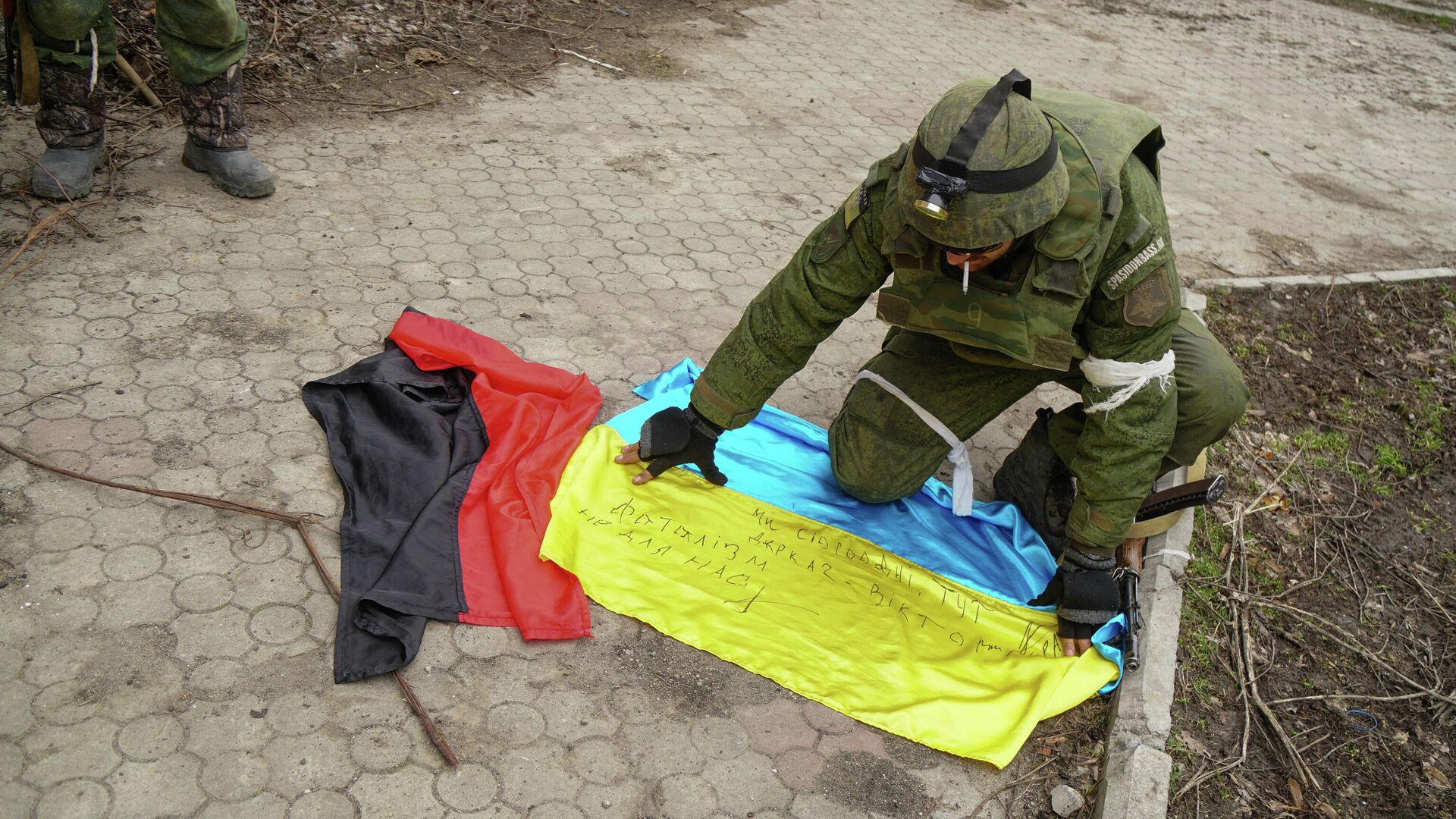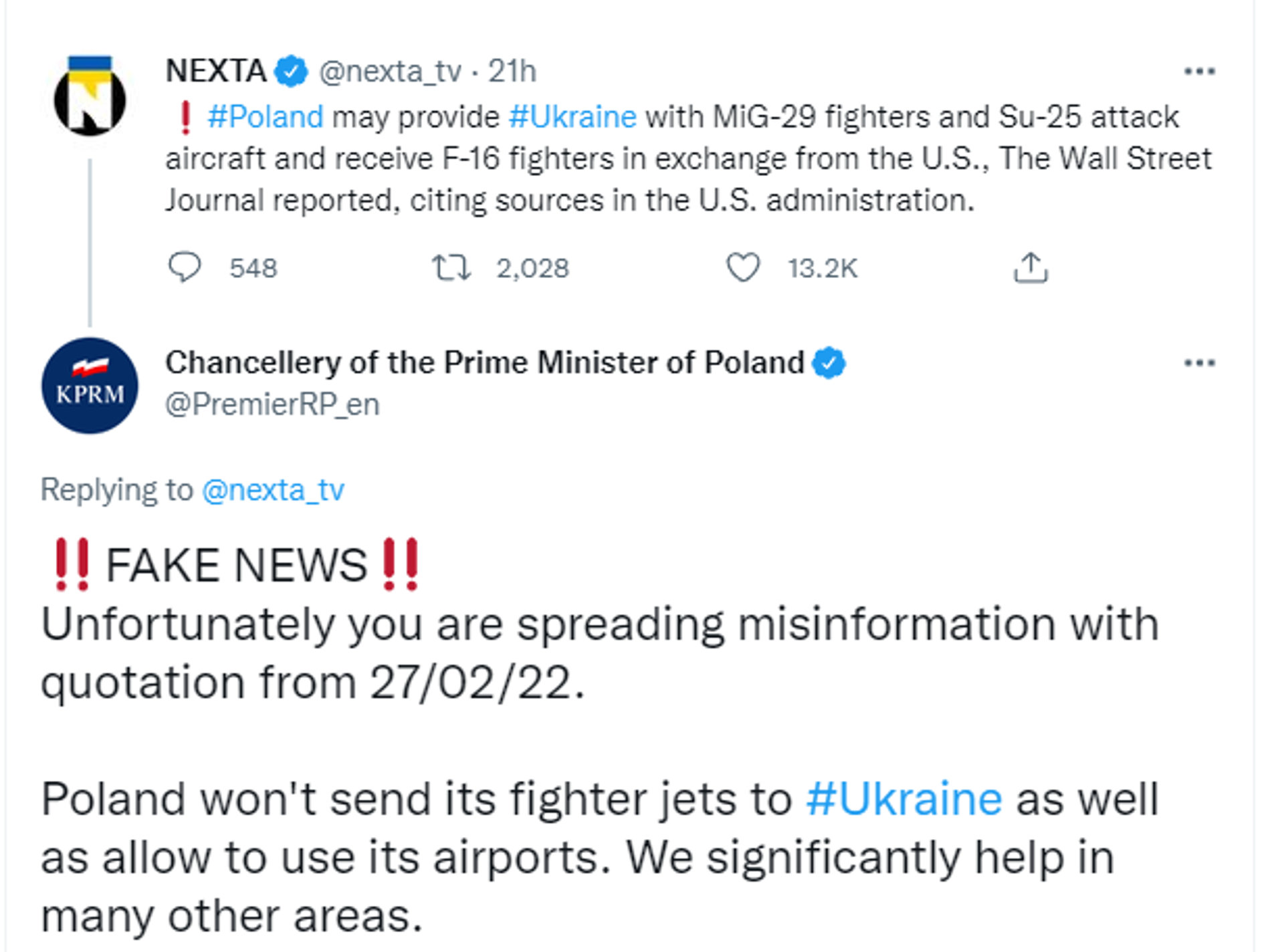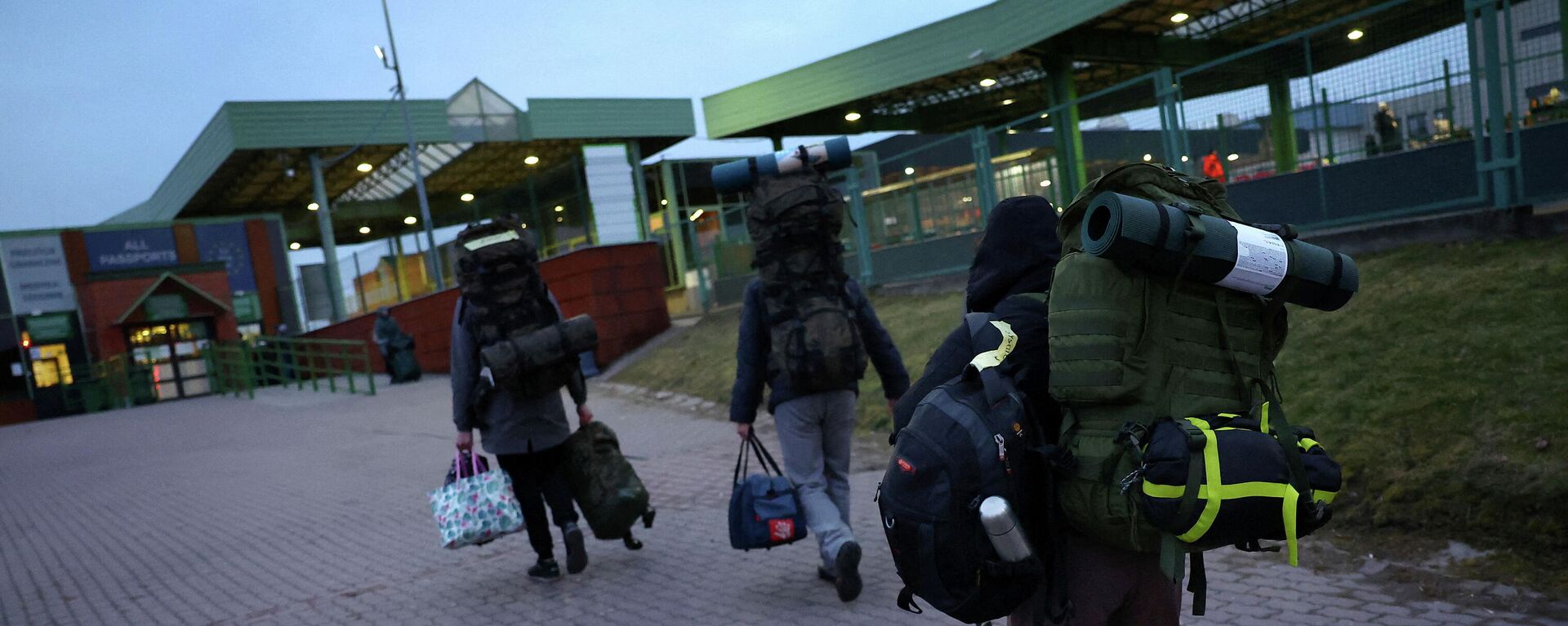https://sputnikglobe.com/20220306/ukraine-says-nearly-20000-mercenaries-en-route--but-just-who-are-they-1093643491.html
Ukraine Says Nearly 20,000 Mercenaries En Route – But Just Who Are They?
Ukraine Says Nearly 20,000 Mercenaries En Route – But Just Who Are They?
Sputnik International
Many nations have reacted with alarm as the Ukrainian regime seeks their citizens for an “international legion” of mercenaries in its fight against Russian... 06.03.2022, Sputnik International
2022-03-06T23:23+0000
2022-03-06T23:23+0000
2022-08-06T13:28+0000
mercenaries
ukraine
foreign fighters
russia
poland
antony blinken
fighter jets
us
https://cdn1.img.sputnikglobe.com/img/07e6/03/04/1093575379_0:186:3072:1914_1920x0_80_0_0_d2052e7d70519c5cc1adc86c48715e59.jpg
Nearly 20,000 foreign mercenaries are looking to fight alongside the rapidly-diminishing ranks of Ukraine’s crippled military, according to Ukrainian Foreign Minister Dmytro Kuleba. On Sunday, the Ukrainian regime announced the opening of a website for mercenaries hoping to “help Ukraine,” the latest move in a growing campaign to turn to foreign fighters for what they frame as the ‘defense of the motherland.’It’s unclear how many, if any, of the hired guns have entered the country, but on Friday Russia’s Foriegn Intelligence Service warned in a statement that “the US and UK intelligence services in recent weeks have de facto turned Polish territory into a 'logistical hub' used to supply weapons and smuggle fighters”-- including Daesh* terrorists from Syria reportedly trained at the Al-Tanf military base.Poland has emerged as one of the foremost logistical hubs for weapons being shipped by European nations to what remains of the Ukrainian regime’s military after a week and a half of punishing losses inflicted by the Russian armed forces. But the full implications of the flow of mercenaries into the conflict have not yet become clear. It’s a new phenomenon–one encouraged by Ukraine’s suspension of visa requirements for foreign fighters–and only time will tell what could come of certain countries’ apparent willingness to be used as a staging ground for hostilities with Russia.Just hours after Russian defense spokesman Igor Konashenkov explained that any decision by neighboring countries to offer Ukraine the use of their airfields (or otherwise facilitate a so-called ‘No-Fly Zone) “may be regarded as the involvement of these states in an armed conflict,” the Polish Foreign Ministry threw water on the possibility, condemning as “fake news” a tweet by Nexta, anti-Russian outlet allegedly funded by the US and founded by a Belarussian blogger who reportedly once fought alongside Ukraine’s notorious neo-Nazi Azov batallion.“Unfortunately,” they explained, Nexta is “spreading misinformation.”“We significantly help in many other areas,” they added.But Poland isn’t the only country facilitating the influx of soldiers of fortune into the war-torn region. A number of foreign fighters jumped at the chance to help cobble together the so-called “International Legion” of mercenaries that Ukrainian President Volodymyr Zelensky has called for, with recruits from the US, Canada, and Japan apparently jumping at the chance to fight for what some outlets have said is a $60,000/month check.But not everybody has been pleased with the Ukrainian regime’s efforts to involve their citizens in a highly-politicized global conflict. Algeria ordered the Ukrainian embassy to remove from its Facebook page an advertisement exhorting "foreign nationals" to contact the embassy and "join the resistance to the Russian occupiers and protect world security.” A source with Algeria’s Foreign Ministry reportedly told Algerian news website TSA that the post "violated the provisions of the Vienna Convention on diplomatic relations between states.”Senegal was forced to take a similar stance after the Ukrainian embassy relayed the call for mercenaries, demanding the request be "immediately withdrawn” and insisting that “any procedure for enlisting people of Senegalese or foreign nationality" cease “without delay.”And even the UK–one of the Ukrainian regime’s most vocal supporters on the international stage–had to walk back Foreign Secretary Liz Truss’ efforts to cajole British nationals into joining the fray. On Sunday, UK armed forces head Admiral Tony Radakin said it was “unlawful and unhelpful” for Britons to fight against Russia in Ukraine.*Daesh (ISIL/ISIS/Islamic State) is a terrorist group banned in Russia and many other countries.
https://sputnikglobe.com/20220303/16000-foreign-mercenaries-are-going-to-fight-for-ukraine-zelensky-claims-1093543054.html
ukraine
russia
poland
Sputnik International
feedback@sputniknews.com
+74956456601
MIA „Rossiya Segodnya“
2022
News
en_EN
Sputnik International
feedback@sputniknews.com
+74956456601
MIA „Rossiya Segodnya“
Sputnik International
feedback@sputniknews.com
+74956456601
MIA „Rossiya Segodnya“
mercenaries, ukraine, foreign fighters, russia, poland, antony blinken, fighter jets, us
mercenaries, ukraine, foreign fighters, russia, poland, antony blinken, fighter jets, us
Ukraine Says Nearly 20,000 Mercenaries En Route – But Just Who Are They?
23:23 GMT 06.03.2022 (Updated: 13:28 GMT 06.08.2022) Many nations have reacted with alarm as the Ukrainian regime seeks their citizens for an “international legion” of mercenaries in its fight against Russian servicemen.
Nearly 20,000 foreign mercenaries are looking to fight alongside the rapidly-diminishing ranks of Ukraine’s crippled military, according to Ukrainian Foreign Minister Dmytro Kuleba. On Sunday, the Ukrainian regime announced the
opening of a website for mercenaries hoping to “help Ukraine,” the latest move in a growing campaign to turn to foreign fighters for what they frame as the ‘defense of the motherland.’
It’s unclear how many, if any, of the hired guns have entered the country, but on Friday Russia’s Foriegn Intelligence Service warned in a statement that “the US and UK intelligence services in recent weeks have de facto turned Polish territory into a
'logistical hub' used to supply weapons and smuggle fighters”-- including Daesh* terrorists from Syria reportedly trained at the Al-Tanf military base.
Poland has emerged as one of the foremost logistical hubs for weapons being shipped by European nations to what remains of the Ukrainian regime’s military after a week and a half of punishing losses inflicted by the Russian armed forces. But the full implications of the flow of mercenaries into the conflict have not yet become clear. It’s a new phenomenon–one encouraged by Ukraine’s suspension of visa requirements for foreign fighters–and only time will tell what could come of certain countries’ apparent willingness to be used as a staging ground for hostilities with Russia.
On Sunday, US Secretary of State Anthony Blinken
publicly prodded Polish authorities, telling CNN that the US “very much” supports Poland “providing MiGs, SUs, planes that Ukrainians can fly, to the Ukrainians.” But, so far at least, Poland appears to have refused to take the bait.
Just hours after Russian defense spokesman Igor Konashenkov explained that any decision by neighboring countries to offer Ukraine the use of their airfields (or otherwise facilitate a so-called ‘No-Fly Zone) “
may be regarded as the involvement of these states in an armed conflict,” the Polish Foreign Ministry threw water on the possibility, condemning as “fake news” a tweet by Nexta, anti-Russian outlet
allegedly funded by the US and founded by a Belarussian blogger who reportedly once fought alongside Ukraine’s notorious neo-Nazi Azov batallion.
“Unfortunately,” they explained, Nexta is “spreading misinformation.”
“Poland won't send its fighter jets to #Ukraine” they say, nor will it allow neighbors to “use its airports.”
“We significantly help in many other areas,” they added.
But Poland isn’t the only country facilitating the influx of soldiers of fortune into the war-torn region. A number of foreign fighters jumped at the chance to help cobble together
the so-called “International Legion” of mercenaries that Ukrainian President Volodymyr Zelensky has called for, with recruits from the
US, Canada, and Japan apparently jumping at the chance to fight for what some outlets have said is
a $60,000/month check.
But not everybody has been pleased with the Ukrainian regime’s efforts to involve their citizens in a highly-politicized global conflict. Algeria ordered the Ukrainian embassy to remove from its Facebook page an advertisement exhorting "foreign nationals" to contact the embassy and "join the resistance to the Russian occupiers and protect world security.” A source with Algeria’s Foreign Ministry reportedly told Algerian news website TSA that the post "violated the provisions of the Vienna Convention on diplomatic relations between states.”
Senegal was forced to take a similar stance after the Ukrainian embassy relayed the call for mercenaries, demanding the request be "immediately withdrawn” and insisting that “any procedure for enlisting people of Senegalese or foreign nationality" cease “without delay.”
And even the UK–one of the Ukrainian regime’s most vocal supporters on the international stage–had to walk back Foreign Secretary Liz Truss’ efforts to cajole British nationals into joining the fray. On Sunday, UK armed forces head Admiral Tony Radakin said it was “unlawful and unhelpful” for Britons to fight against Russia in Ukraine.
*Daesh (ISIL/ISIS/Islamic State) is a terrorist group banned in Russia and many other countries.



